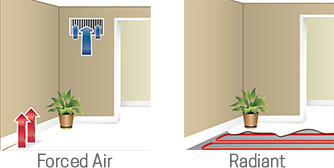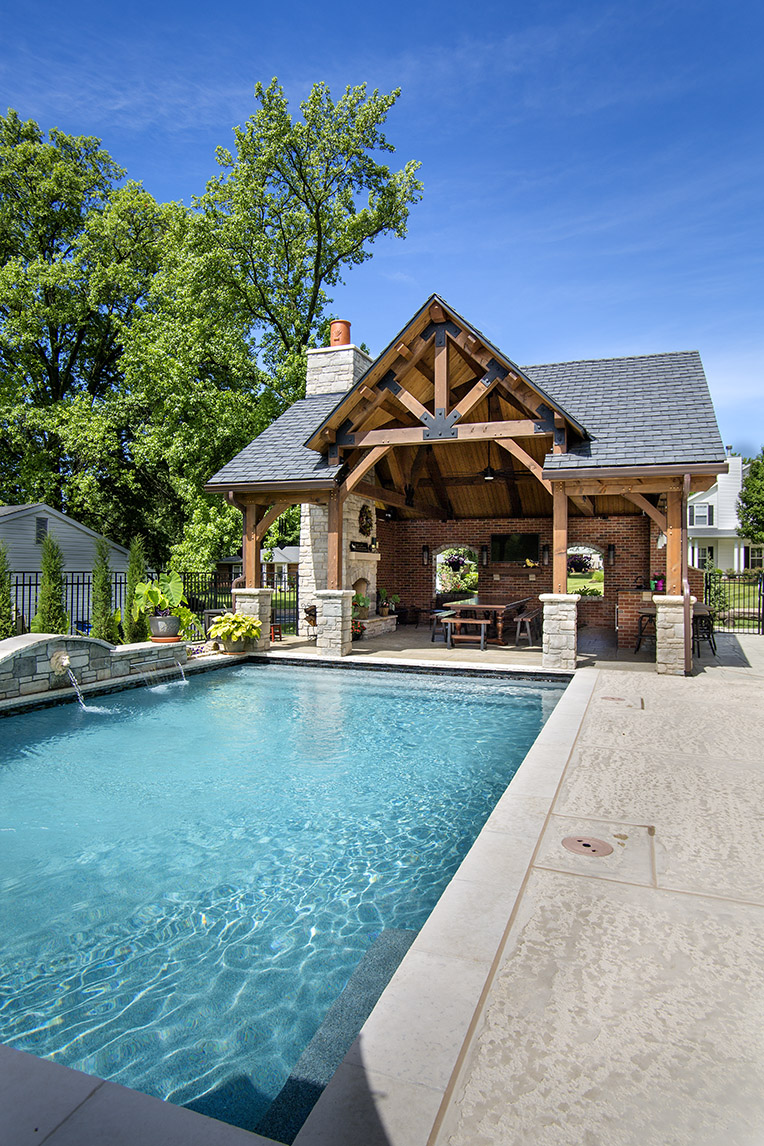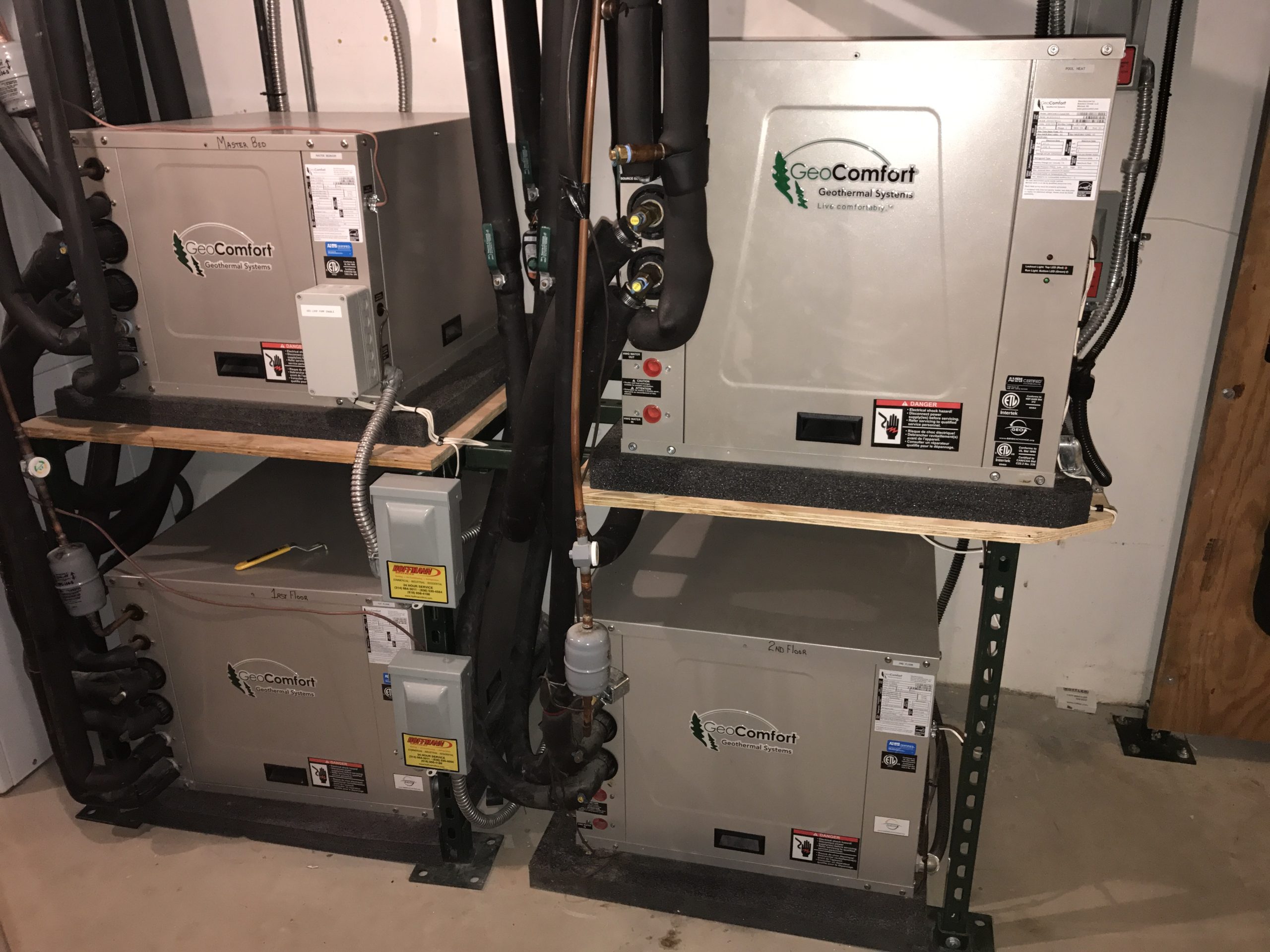Hi! How can we help you?
Geothermal F.A.Q.s
Questions? We’ve got the answers.
A ground source heat pump (GSHP) and a geothermal heating and cooling system are the exact same thing. Geothermal systems are also referred to as ground source heat pumps because they use ground source energy (stored solar energy) to heat and cool homes.
See How Geothermal WorksGeothermal is actually the best heating and cooling system to have if you’re interested in installing a PV solar system for your home or building. Since geothermal dramatically reduces the amount of electricity needed, your solar system should easily be able to power your whole home if sized correctly.
See how you can combine solar and geothermal on our blog.

Yes, geothermal can be used to heat your pool year round. This is a very efficient way to keep your pool comfortable. You’ll see a few pictures here of a home that has a pool heated by geothermal.


Absolutely! Geothermal can be installed in several ways depending on your needs. A hybrid system would supplement your existing traditional system if your furnace is still in good condition and you live in a particularly cold area. In this scenario, the geothermal system provides 90% of your home’s heating requirements, and the traditional system turns on when the outdoor temperature reaches a certain low temperature. Geothermal systems can work on their own in very cold temperatures, but when paired with a traditional system, this combination can create the perfect solution for the most efficient heating.
Geothermal can also be installed to completely replace your traditional system, which is usually the most efficient solution. In either scenario, the ground loop will need to be installed to make geothermal work for you.
There are two main components to a geothermal system. The ground loops, which are installed underground, have an indefinite lifespan (100 years plus). This part of the system should only need installed once. The second part of the system is the heat pump unit, which is installed indoors. The average lifespan of a geothermal unit is 25 years (many last beyond this), which makes its longevity superior to a traditional heating or cooling system that has an average lifespan of only 15 years. If a ground loop has already been installed, the indoor part of the system can usually be replaced with no more work or expense than a traditional system.
The earth absorbs almost 50% of the sun’s solar energy and stores it below the surface. The ground loop powering a geothermal system uses that renewable energy to heat and cool homes. Traditional forms of heating and cooling like natural gas, propane, oil, air source, etc. do not use a renewable energy to operate, so they can never be as environmentally friendly.
Traditional HVAC systems that use fossil fuels cannot be as efficient as a geothermal system because they require combustion (flames) to operate and provide heat. Air-source and ductless systems are also not as efficient as geothermal because they are creating warm or cold air based on the outdoor temperatures, which can fall well below freezing or on the opposite end, get very hot. Geothermal is transferring heat from the moderate temperatures below ground as opposed to the varying conditions we feel outside.
Yes! This is where the different types of ground loops come into play. As long as you have a 10×10 area of land, you can do a vertical loop.
Anywhere! Literally. Geothermal systems can be installed in the city, suburbs, or rural areas; anywhere between the mountains and the Caribbean; in old homes and buildings or new; and in small or large structures. We’ve even seen geothermal used frequently to regulate greenhouses. There’s almost no job geothermal can’t do.
Geothermal heating and cooling systems, also known as ground source heat pumps, heat, cool, and provide environmentally-friendly, energy-efficient heating, cooling, and hot water for homes and buildings.